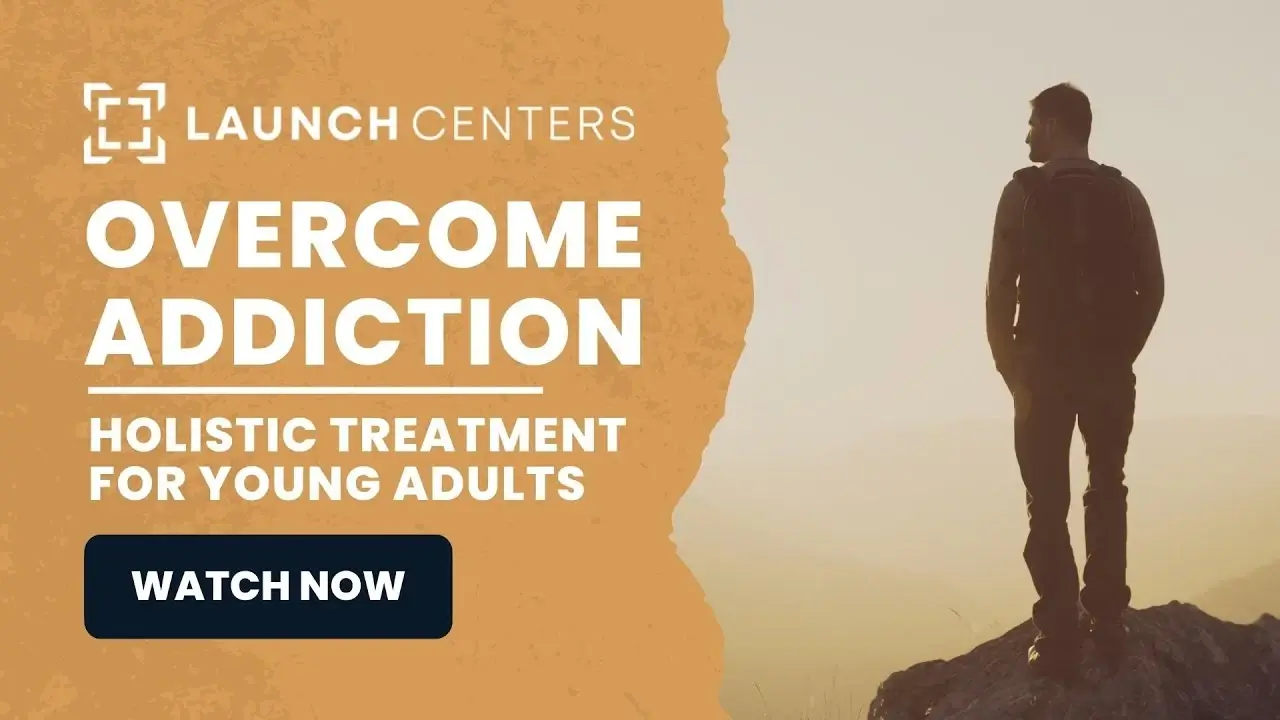
Alcohol Treatment In Los Angeles
Alcohol treatment in Los Angeles, California can help you or your loved one gain the tools and coping skills that they need to succeed in recovery. We’re here to help young adults find solutions to the underlying issues that cause alcoholism. Launch Centers provides a range of therapeutic services in order to help those struggling with alcohol abuse find recovery.

Health Crisis of Alcoholism in Los Angeles, CA
Alcoholism or alcohol use disorder (AUD) is one of the biggest health crises in Los Angeles and throughout the United States. According to the Centers for Disease Control and Prevention (CDC), more than 95,000 people die from excessive alcohol use each year in the United States. That adds up to nearly one million people in the past decade alone.
People often overlook the risks of alcohol because alcohol is legal, easily available, and socially acceptable. Alcohol can seem less dangerous than other substances, but alcohol abuse damages the lives of people and their loved ones regardless of age, gender, race, religion, and economic status.
In addition, many younger people begin experimenting with binge drinking in college, and by the time they graduate, this behavior might seem normal to them. A national survey showed that almost 55% of full-time college students ages 18 to 22 drank alcohol in the past month and about 37% engaged in binge drinking during that same time frame. Thankfully, alcohol treatment in Los Angeles is available if you believe yourself or a loved one is suffering with alcoholism.
Signs and Symptoms of Alcoholism
Alcoholism in young adults can create behavioral and cognitive changes. For instance, you might notice that a loved one seems “off” or not quite like themselves anymore. Some of these symptoms could indicate alcoholism or signify other problems in a young adult’s life.
Telling signs and symptoms of alcoholism might appear over time, such as:
- Intense cravings or urges to drink alcohol
- Inability to limit the amount of alcohol you drink
- Spending a significant amount of time drinking alcohol
- Failing to fulfill significant obligations at work, school, or home due to repeated alcohol use
- Continuing to drink alcohol despite adverse consequences (DUI arrests or job loss)
- Spending a lot of time recovering from the effects of alcohol use
- Skipping out on social activities and hobbies you once enjoyed
- Developing a tolerance to alcohol and drinking more to feel the same effects
- Experiencing withdrawal symptoms when not drinking
- Drinking to avoid withdrawal symptoms
What Are the Causes and Risk Factors of Alcoholism?
Alcohol misuse is common in the teenage years, with alcohol use disorder frequently developing when a person is in their 20s and 30s. However, alcohol misuse can start at any age. Alcoholism has a variety of genetic, psychological, social, and environmental risk factors.
Some of the common risk factors of alcoholism include:
- Binge drinking habits starting at an early age
- Family history of substance abuse
- Mental health problems (depression, anxiety, or schizophrenia)
- History of trauma or stress-related situations
- Adverse childhood experiences (ACEs)
- Attachment issues developed in childhood
- Cultural acceptance of heavy drinking
- Parents with relaxed attitudes about drinking and substance use
While not everyone who drinks will develop an AUD, these risk factors increase your chances of having an issue with alcohol. Problem drinking most often occurs when alcohol is used to self-medicate for stress or mental health issues. In addition, people with an AUD might rely on alcohol as a maladaptive coping mechanism for underlying issues.
People who begin drinking at a young age are more likely to develop a disorder later in life due to the effects of alcohol on the developing brain. Alcohol treatment can reverse the effects of alcohol abuse, and you can recover from alcoholism. During treatment, you learn to deal with the underlying causes of alcoholism while developing healthy coping skills to manage stress without using alcohol.
What Happens During Alcohol Treatment in Los Angeles?
Launch Centers understands the devastation that alcoholism can cause in a person’s life and offers several options for treatment. Our professional staff can help put you in touch with professional detox and outpatient services.
Detox Is The First Step of Alcohol Addiction Treatment
During detox, your body rids itself of the harmful chemicals in your system from alcohol abuse. You might have a physical dependence on alcohol if you have been drinking heavily for a few months or longer. Once you stop drinking, your body and mind will struggle to function without alcohol. Because of this, you could have withdrawal symptoms ranging from mildly discomforting to life-threatening.
Alcohol withdrawal symptoms include:
- Anxiety and depression
- Nausea and vomiting
- Difficulty thinking
- Sweating and clammy skin
- Restlessness
- Sleep disturbances
- Agitation
- Shakes and tremors
- Seizures
- Hallucinations
- Severe mental confusion
Medication-Assisted Treatment for Withdrawal Symptoms
Medication-assisted treatment (MAT) can help treat alcohol withdrawal symptoms. Due to the severity and potential danger of alcohol withdrawal, the Food and Drug Administration (FDA) has approved medications specifically to treat symptoms of alcohol withdrawal. During MAT, you get medications to manage these symptoms along with behavioral health support for comprehensive treatment.
FDA-approved medications used to treat alcohol withdrawal symptoms include:
- Naltrexone
- Acamprosate
- Disulfiram
- Librium
What Happens After Detox From Alcohol?
After detox, you might enter an inpatient or residential rehab facility. Residential treatment centers provide 24/7 support for those in early recovery from alcohol addiction. Outpatient treatment programs could be a viable option for those with a stable home environment. During outpatient treatment, you can still get an intensive level of care without living within a treatment facility.
Launch Centers offers the following outpatient services:
- Partial Hospitalization Program (PHP): High levels of support and programming during regular work hours, usually 4 to 5 days each week for several hours each day.
- Intensive Outpatient Program (IOP): Similar to PHP, except a shorter schedule with more flexibility to manage work, school, or family responsibilities.
- Outpatient Program (OP): Weekly or bi-weekly meetings with a therapist for about 1 hour at a time to resolve specific issues
During outpatient treatment, you will have therapeutic support and life skills development because alcoholism affects multiple areas of your life. You might struggle with relationships, legal issues, finding work, or underlying mental health issues. Launch Centers helps you with various treatment modalities, life skills, and career development programs tailored to your needs in recovery.
How Long Does Los Angeles Alcohol Treatment Last?
Los Angeles alcohol treatment typically lasts between 90 and 180 days for all stages of treatment. We understand each person is unique in their treatment needs and preferences. Some people need more intensive support than others due to co-occurring mental health issues and the severity of their addiction.
Timeline for Each Level of Treatment at Launch Centers
- Detox is about 1 to 2 weeks
- Partial hospitalization, also known as “day treatment” can last 2 to 4 weeks
- Intensive outpatient programs typically last about 1 to 2 months
- Outpatient programs can vary in length; however, you might expect about 2 to 3 months to meet your treatment goals
After active treatment, your recovery from alcoholism can continue with regular psychiatric appointments, follow-up therapy, and peer support groups.
Alcohol Treatment in Los Angeles
If you or someone you love suffers from an alcohol use disorder, we can help. Launch Centers in Los Angeles, California treats alcoholism, drug addiction, and co-occurring mental health issues. Treatments for co-occurring mental health disorders include depression, anxiety, and post-traumatic stress disorder (PTSD). We help young adults find a treatment path that meets their needs to give them coping skills to last a lifetime in recovery. Call today or visit our admissions page to begin your recovery.




